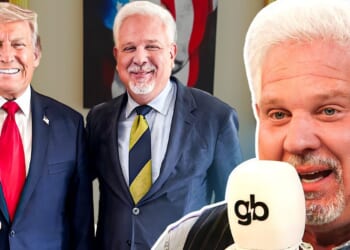When you take a relative to the emergency room, you trust that the person with a medical degree will have a better grasp of physiology, ailments, and treatments than you do. No sane person expects a doctor to sit down and explain biochemistry before treatment.
Because appeals to authority and credentials are part of the social contract.
Every time you drive over a bridge, your rational expectation is that the government has hired a credentialed engineer to design it and an experienced construction crew to build it. Someone who does “their own research” is unlikely to understand a fraction of what an infectious disease doctor, structural engineer, or concrete expert knows. Division of knowledge is the only way a modern world works.
Now, obviously, some subjects are more consequential and complex than others. But the point remains.
The populist Right seems to have learned many of the wrong lessons from the COVID-era cratering of trust in experts and authority. Instead of demanding more accountability for experts, populists are filling the credibility void with charlatans and cranks who do little more than assuage their confirmation bias.
Anthony Fauci, the former director of the National Institute of Allergy and Infectious Diseases, wasn’t merely aggressively inaccurate about the COVID pandemic. He also championed authoritarian policies that inflicted untold damage on the country, decimating public trust in institutions. But Fauci’s actions aren’t a stain on “expertise” as much as another instance of a leader abusing his power (often in the name of helping others).
Discarding decades of accrued public health knowledge because Fauci acted poorly is rejecting moral truths because your priest acted immorally. Indeed, turning to Robert F. Kennedy Jr. to lead the country’s health policy is like turning back to Baalism because your rabbi skimmed from the till.
Let’s recall that the important scientific debate in those years wasn’t between the experts and angry laymen on Twitter but between government bureaucrats and censored scientists, such as Drs. Jay Bhattacharya from Stanford and Martin Kulldorff from Harvard, and thousands of other credentialed academics from around the world who signed the Great Barrington Declaration challenging Faucism.
Even before COVID, trust in institutions was being undermined by experts promising too much, as well as expecting too much of them.
Even if Fauci had been right about wearing masks and closing schools, businesses, and churches to flatten the curve, the prescriptions would still have been wrong. We can rely on experts while acknowledging they see the world through a narrow prism. Thomas Sowell famously wrote that there aren’t solutions, only trade-offs. And so we balance knowledge with other concerns — constitutional rights or the educational development of children and so on.
Expertise is real, but it is not holy writ, which is why we should stop expecting people with specialized knowledge to be imbued with seer-like abilities. Economists are often wrong in predicting unemployment rates or GDP growth because an economy entails millions of people making hundreds of millions of decisions every day. That doesn’t mean they’re wrong about comparative advantage, moral hazard, or supply and demand.
On the flip side, a correct prediction doesn’t automatically make you an expert, either. There are public figures who prophesize market crashes and pandemics every year. Sooner or later, they’re going to be “right.”
But much of populist aggrievement about experts and elites is based on aesthetics and tone. When Douglas Murray, who spent years reporting and writing on the Middle East, appeared on Joe Rogan’s popular podcast debating a comedian about the Israel-Hamas war last week, pundits complained about his haughty tone and appeals to authority. So what?
Imagine, if you can, the subject matter you know best, the thing that you’ve spent years, perhaps decades, considering, experiencing, and mastering. Now, imagine a stranger who has spent about five minutes contemplating the same topic walking into your place of work and declaring that everything you know is false. He answers to no one. He isn’t obligated to cite research or build on a tradition of knowledge. He has no credentials or track record to defend, so he throws around fallacious claims or snippets of information without any concern for his reputation. The more outlandish and transgressive he is, in fact, the more popular he becomes. He makes a living on sophistry and emotional appeals and dunks.
You, on the other hand, don’t have the luxury of making things up on the fly because you answer to a boss and colleagues and have a reputation that is built on experience.
This is what probably exasperated Murray. Sure, it’s bad form to be dismissive of others simply because they lack the same experience or knowledge. It makes complete sense to be dismissive of someone with a superficial understanding of a topic and who acts like he or she knows more than you.
Everyone has a right to an opinion. And autodidacts can possess great knowledge. I have acquaintances with no real academic backgrounds who are impressive polymaths. In many ways, having a normie holistic understanding of the world is the best antidote to unhealthy paranoia. No one says we can’t have our own thoughts.
We have gone from decrying the corruption of experts to using the very notion of “expert” as a pejorative. Now, every idea seems up for grabs, like we’re in Year Zero. We are sliding into relativism. The inclination to upend the status quo and break things leads people to oppose reactively whatever “elites” have ever said. This is just self-destructive.
Of course, an educated person might enjoy listening to Glenn Beck, Tucker Carlson, or Joe Rogan interviewing Alex Jones because they don’t take the spectacle too seriously. The problem is that many uneducated people, and we can blame our school systems, consume these ideas as one might have read Will Durant in the past.
No, this is not a unilateral problem. The podcast historian is very much like the New York Times journalist who writes a racialist history of the United States, arguing that the American Revolution was fought to preserve the institution of slavery. Like the person who blames Winston Churchill for World War II, the 1619 Project author writes from a predetermined ideological position and then backfills her theory with cherry-picked bits of out-of-context history to create a narrative that works for her.
The establishment media helped create a vacuum of trust. Journalists didn’t lose the public’s faith because they were haughty or appealed to authority but because they were haughty and appealed to authority without exhibiting any true adherence to facts. Walter Cronkite used to sign off his nightly newscast with “That’s the way it is” because, more or less, it was. The New York Times can no longer make that claim.
The same critique could be made of institutions of higher learning. It is obvious to anyone who’s paid attention over the past decades that a Ph.D. in colonialism or gender studies offers no useful knowledge. The value of many degrees has been corrupted. Even STEM degrees have been denigrated for political causes. Alarmist climate scientists are as persistently wrong as the biologist who refuses to concede that life begins at conception. It’s difficult to know who to trust.
Anyway, say hello to “Catturd” and his 3.2 million followers.
Of course, there’s no magic formula for figuring out when experts are right or wrong. Some experts abuse their position. Some allow philosophical considerations to trump accuracy and decency. Some will lie for fame or money and power. Experts are human. The best way to combat bad ones is to find your own effective, clear-headed thinkers, as conservatives have always done, not to celebrate contrarianism for contrarianism’s sake and lift every nut who has an opinion you like to a position of authority.
THERE IS NO ECONOMIC EMERGENCY
Teachers often tell children there are no stupid questions. And maybe that’s the case for toddlers and prepubescent children. In the adult world, it’s a ridiculous trope. There are many good questions to ask. Challenging every historical event and scientific wisdom, though, is the domain of an ignoramus.
Knowledge matters. Any idiot can “ask questions.”















